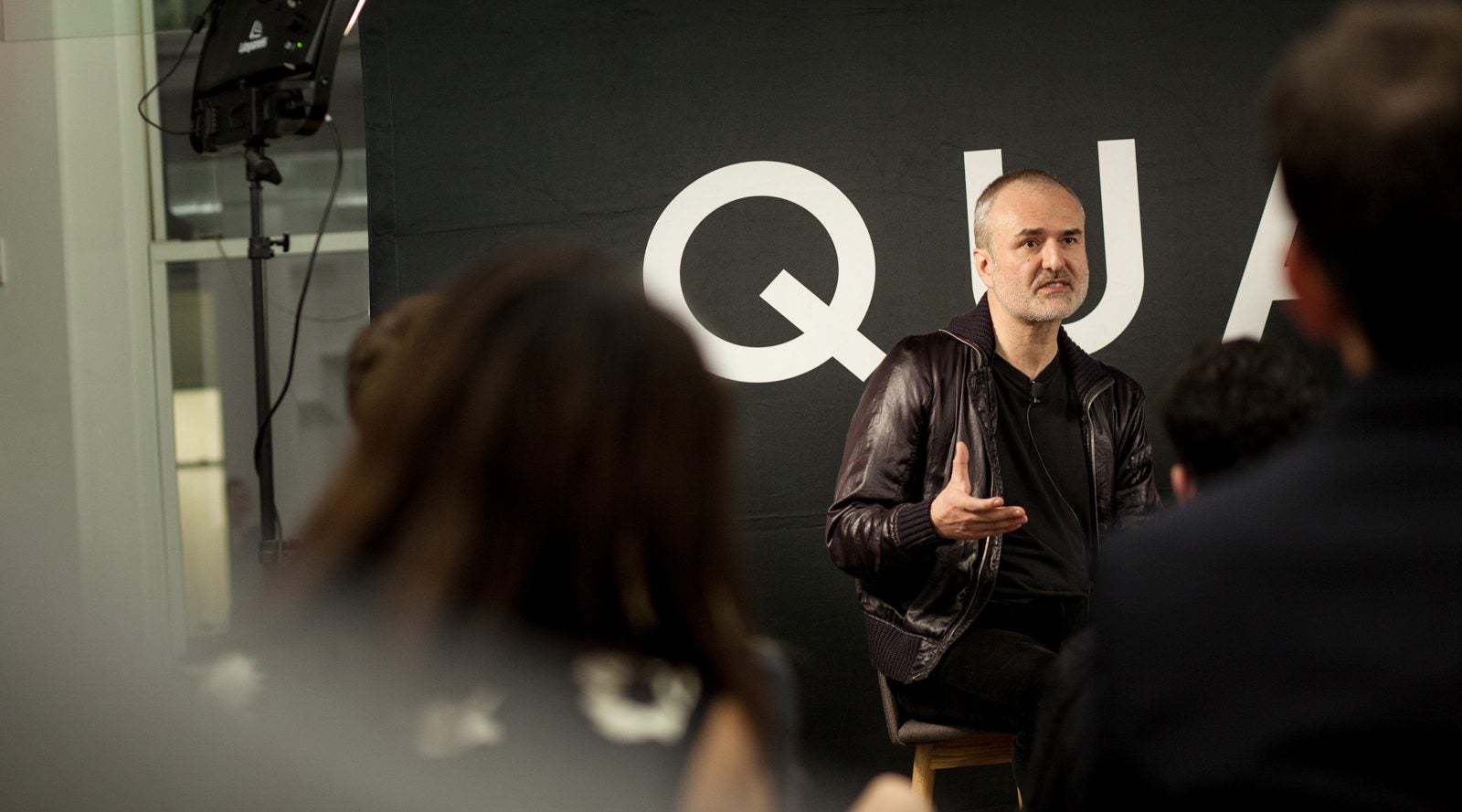Gawker founder Nick Denton: The internet “has brought all the poisons to the surface”
Gawker Media founder Nick Denton might be forgiven some post-ordeal cynicism: He was recently forced into personal bankruptcy by a Silicon Valley billionaire bankrolling a lawsuit by former professional wrestler Hulk Hogan over a sex tape. But Denton says he’s happy with Univision’s purchase of his former empire (since renamed Gizmodo Media), and has no Peter Thiel revenge plots in the works. (The tell-all would be called One to Zero though, he jokes.) Instead, Denton is busy filing appeals and holding out hope—for the internet, humanity, and their ability to save each other from… each other.


Gawker Media founder Nick Denton might be forgiven some post-ordeal cynicism: He was recently forced into personal bankruptcy by a Silicon Valley billionaire bankrolling a lawsuit by former professional wrestler Hulk Hogan over a sex tape. But Denton says he’s happy with Univision’s purchase of his former empire (since renamed Gizmodo Media), and has no Peter Thiel revenge plots in the works. (The tell-all would be called One to Zero though, he jokes.) Instead, Denton is busy filing appeals and holding out hope—for the internet, humanity, and their ability to save each other from… each other.
“There’s a story to be written about the arc of the internet,” Denton said during a public conversation at Quartz’s New York headquarters on Oct. 4. “The initial idea, which motivated me, was the idea that you can reach out, find your own kind, learn things, get deep into some forum, and get information on this thing you never knew anyone else was interested in apart from yourself. That was the amazing dream and a lot of it has been realized.
“But the era that we’re in right now is a lot of chaos. It feels like the internet is at the core not just of everything good going on in society, but everything bad going on on in society.”
Denton says this turning point was hastened by social media (though he did not directly address Gawker’s role in the debasement). And yet he is still compelled by the potential of online engagement. To hear him talk about the ideal digital news outlet is to imagine a world in which journalists, subjects, sources, and experts are engaged in a perpetual real-time conversation—sort of a WordPress meets Twitter meets Quora meets Genius meets an intimate, in-person gathering.
It should feel like a seminar, or a dinner party, or a small cocktail party. Maybe you don’t know everybody, but you know people and maybe they can bring a plus-one. There’s a little bit of novelty, a little bit of variety, a little bit of openness—you don’t want to be talking to the same people all the time—but if someone behaves badly, maybe the person who brought them in won’t be invited in next time.
Denton still has visions of realizing this dream, at least when the Gawker litigation is over, and says his next venture could be a startup focused on forums.
Unfortunately, uninviting someone to an intimate gathering is awkward; so is policing the door. And the logistics of enabling online discussion tend to trip up social networks and media outlets alike. For some companies, like Gawker publishing platform Kinja, the endgame is an innovative—and hopefully lucrative—way to tell stories online. But for Facebook and Twitter, the stakes are higher: It’s not great business strategy or good karma to be the gathering place of choice for would-be terrorists, sexual harassers, and hate-speech enthusiasts.
Denton says we’re “in a period now where the internet has brought all of the poisons to the surface.” But he hasn’t lost faith. ”I think I’m the last person alive who still believes that the internet is going to make things better.”